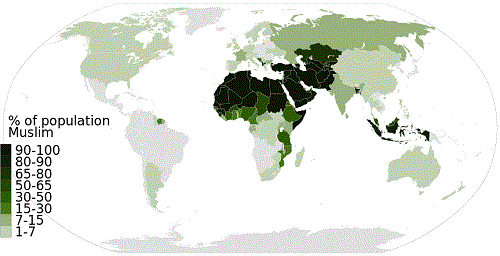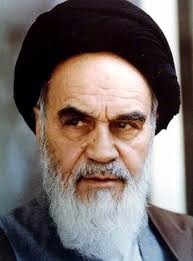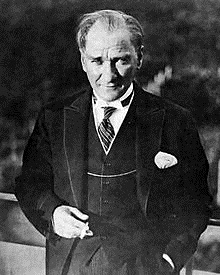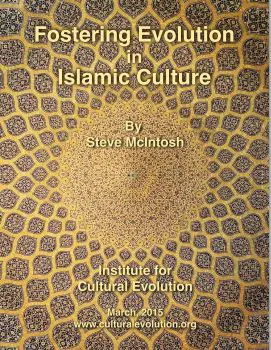|
TRANSLATE THIS ARTICLE
Integral World: Exploring Theories of Everything
An independent forum for a critical discussion of the integral philosophy of Ken Wilber
 Marty Keller is a native of the Detroit area. Graduated from the University of Michigan in 1973 where along with everybody else he fell in love with socialism, and has had at least ten different careers and political journeys since then. Came to California in 1983 and completed Masters Degree in Consciousness Studies at JFK University in 2004. He has always had a compelling interest in our political system, with a special devotion to the example of Abraham Lincoln as the quintessential American statesman. Recently completed 12 years of state government service, and 14 years in the Unity movement; now works to support disabled veteran business owners. He started writing commentary on Wilberian ideas with the WilberBlog in Jordan Gruber’s now-defunct enlightenment.com web site; has been posting desultorily on AQALBlog for the past eight years. Regularly unwelcome at Boulder-centric events. Marty Keller is a native of the Detroit area. Graduated from the University of Michigan in 1973 where along with everybody else he fell in love with socialism, and has had at least ten different careers and political journeys since then. Came to California in 1983 and completed Masters Degree in Consciousness Studies at JFK University in 2004. He has always had a compelling interest in our political system, with a special devotion to the example of Abraham Lincoln as the quintessential American statesman. Recently completed 12 years of state government service, and 14 years in the Unity movement; now works to support disabled veteran business owners. He started writing commentary on Wilberian ideas with the WilberBlog in Jordan Gruber’s now-defunct enlightenment.com web site; has been posting desultorily on AQALBlog for the past eight years. Regularly unwelcome at Boulder-centric events.
Comments on Steve McIntosh's Paper on Modernizing IslamMarty KellerThe Institute for Cultural Evolution (ICE) and its co-founder Steve McIntosh have just released a new white paper entitled “Fostering Evolution in Islamic Culture,” and have requested comments. The purpose of the paper is to propose a method for Western societies to address the challenge the “difficult and dire problem” of “the ongoing rise of radical Islamism” we have been witnessing since the end of the Cold War. The underlying assumption of the paper derives from ICE’s “aim to create significant forward movement in the evolution of the American political landscape, and apply this new ‘evolutionary’ perspective to the developmental challenges of a complex, globalizing world.” ICE believes that it is possible to “positively influence the evolution of American culture in realistic and measurable ways” by “applying groundbreaking insights taken from Integral philosophy, developmental psychology, evolutionary theory, and the social sciences to help create significant forward movement in the evolution of the American cultural and political landscape.” Now, apparently, not content with this demanding undertaking, we are invited to apply this same thinking to “Muslim culture” as the beginning of a remedy to the problem of radical Islamism. I truly love and appreciate these efforts to uncover what, if anything, can be done to consciously expand consciousness on a mass basis. Having studied this for some time, my own conclusion is “not at this time,” but what do I know? Still, I find many flaws in the ICE proposition and its analyses, and this particular paper has its share. Perhaps its author might be willing to consider them. Where to begin? The paper makes regular reference to “traditional Islamic culture” as if that is a uniform system encompassing the 1.6 billion Muslims around the world. But this is, at best, a misnomer, for many distinct cultures with their own peculiar history, political economy, and customs embrace Islam, from Arabic, Turkish, Egyptian, and Persian to Kazakh, Afghani, Punjabi, Indonesian, and many others. While they all have Islam in common, they also are all centered in amber [mythic] consciousness, which, as I will point out, is the actual issue. So without accounting for the differences among these various societies, it is not possible for “the West” to develop strategies to deal with a non-existent generic “Islamic culture.” This is especially important because McIntosh asks us to “learn more about the beauty and truth contained within the teachings of Islam” without ever stating what those are. As integralists we automatically take note of the truth contained in each human endeavor, but we also say what they are.
Divergences between Christianity and Islam
Islam was founded as a successful spiritual polity in a particular time and place, and its traditions stem from this unique fact.
Discerning the beauty and truth of Islam is especially challenging for the postmodern Westerner because, unlike Judaism and Christianity, Islam is not a particularly doctrinal religion, nor, as we will see, is it designed to accommodate a modernizing world. The teachings of Islam focus on encouraging society as a whole behave according to the will of Allah, which is what the Quran purports to reveal. This revelation given to Muhammad is whole and complete and not susceptible to human tinkering. The Quran is not a religious version of the living Constitution, ever adaptable to the whims of a particular age; it is a universal and perfect explication of Allah’s will for His people. Further, Islam is not a salvific religion. It does not adopt the Judeo-Christian belief that the nature of man is fallen and thus in need of redemption. Muslims do not believe that humans are inherently sinful and that the goal of life is to overcome this depraved condition. Christianity, of course, takes this to the extreme step of asserting that God entered into His creation as a man in order to redeem humanity from its original sinful condition through His own death and resurrection. Humans can shed our depravity by acknowledging God’s loving act of sacrifice through accepting Jesus the Christ as our personal savior. None of this resonates with Muslims. Allah does not intervene in history; He is aloof, transcendent, and unapproachable. He sets the rules and expectations as revealed by a series of prophets of whom Muhammad was the greatest and last. It is up to humanity to surrender its will to the will of Allah, but Allah reserves to Himself the ultimate disposition of the souls of each person upon his or her death. Nothing a person does during life impacts Allah’s decisions in the least. Each Muslim hopes that by living a righteous life he or she will gain heaven, but unlike Christians nothing he or she does can guarantee it. Because Islam is far more an orthopraxy than an orthodoxy, it focuses on behavior, not on belief. Pious behavior is essential to the spiritual health of society as a whole; thus individual righteousness is essential to the ummah. This should not be surprising given that Muhammad lived in a highly fractious tribal world—itself just another element of the amber wave that dominated all mankind in the seventh century AD. In that environment where kinship-based tribes and clans constantly fought over the trade routes and natural resources of the Hejaz, the angel Gabriel appeared to Muhammad during one of his spiritual retreats and began the recitation of what became the Quran, which Muhammad made the basis for uniting the local tribes into a single ummah or community of believers. Submission to the will of Allah—the meaning of islam—was to be the unifying activity. 
Ummah (Islamic community) distribution map according to Pew Research.
And how does one submit? By agreeing to undertake the Five Pillars of Islam: declaring the Oneness of Allah whose prophet is Muhammad, praying five times daily, fasting during Ramadan, giving alms to the poor, and making the hajj once before dying. These simple actions are easily done by any and all humans regardless of sex, culture, or financial situation, and thus constitute a powerful means of developing social unity. Unlike the other great world religions, Islam was founded as a successful spiritual polity in a particular time and place, and its traditions stem from this unique fact. The way this came about is the foundation upon which successors to Muhammad as leaders of the ummah built their laws. As Bernard Lewis and Buntzie Ellis Churchill write in Islam: the Religion and the People, The prophet Muhammad, according to the traditional narrative, began his career in Mecca as an opposition leader and, for some time, was engaged in a struggle against authority as established among his people and in his birthplace. When his position became untenable, he moved to Medina, where he formed a government and, from this external base, finally accomplished the forceful overthrow and supersession of the old order at home. In this supersession, as in all else, the Prophet is seen as the model and pattern of behavior. This pattern of resistance, migration, and return became a paradigm for Islamic leaders and movements which sought to challenge the existing order and establish a new one in its place. It was followed by many political-religious leaders. Some of them—like the Abbasids who came to Iraq via eastern Persia in the mid-8th century CE and founded Baghdad; the Fatamids, who came to Egypt via North Africa in the 10th century CE and founded Cairo; and the Ayatollah Khomeini, who returned to Iran via France in the late 20th century CE and founded the Islamic republic—were successful. Many others, in the course of fourteen centuries of Islamic history, tried and failed. There will surely be more. So when we seek to discover the beauty and truth of Islam we might acknowledge its unique contribution: the promotion of a Godly ummah which alone guarantees the conditions for people to most effectively surrender to the will of Allah. As Karen Armstrong writes in Islam, Muhammad’s achievements, particularly in channeling the words of the Quran to humanity, “expressed the Islamic experience of ‘salvation,’ which does not consist in the redemption of an ‘original sin’ committed by Adam and the admittance to eternal life, but in the achievement of a society which puts into practice God’s desires for the human race” [emphasis added]. Not only in the context of seventh century Arabic culture but in the context of the tribal amber wave in general, Muhammad offered refinements that had the potential to tame the worst tendencies of tribal culture and proffer the ideal of a universal ummah that brings all of humanity into its benevolent embrace. Thus Islam, unlike any of the other major religions of the world, specifically addresses and proceeds from the amber worldview. The principles of Christianity, particularly after the Neo-Platonists made their contributions, were a major contributor to the emergence of the modern; it is an explicit project of the Axial Age. The focus of the Eastern religions on transcending the world of samsara made them adaptable to the range of cultures from premodern to post-postmodern. The Buddha offered the Four Noble Truths as the method of detaching from the world of Form. Hindus and Taoists similarly focus on transcendence beyond the world of appearances. Thus calls for “modernizing Islam” will have to deal with its specificity as an amber institution. The key feature of modernity, the discontinuity which makes it radically different from premodern culture, is the emergence of the individual as the central truth of human identity. A religion dedicated to the spiritual health of the ummah has the community as its identity, not the millions of individuals comprising it. The Muslims demonstrate this central truth of their experience by requiring everyone on the hajj to wear the identical simple white garments so that no one is distinguished by anything other than their belonging to the community of believers. By conflating all nations that adhere to Islam into a single “Islamic culture,” McIntosh downplays or overlooks the impact of history on the trajectory of today’s Muslim world. While Arab culture experienced a “golden age” during the 500 years of the Abbasid caliphate, other non-Arabic Muslim cultures experienced different stresses and triumphs. The Arabs along with the Persians were then subjected to the radical upheavals of the Mongol invasions of the late 13th century, and even though most of the Mongols who settled in these regions ultimately adopted Islam, their depredations so weakened the caliphate that within several centuries the Turkish Ottomans were able to supplant them as the dominant tribe in the Middle East. In the meantime, the Mughal Empire arose in India with a completely different historical trajectory from that of the Arabs, Turks, and Persians.
The Inextinguishable Amber Nature of Islam
But from the perspective of Islamic history militant Islamism—at least on its own terms—is reformation.
The point of this is that what characterizes today’s Islamic world is its premodern political economy. Not one nation or country adhering to Islam is a modern industrial society. And while it is undoubtedly true as McIntosh observes that “from the perspective of many Muslims, modernity is simultaneously attractive and repulsive,” it also remains true that modernizing their cultures would require Islam to cease its focus on the ummah in order to develop a culture of individual freedom, responsibility, and initiative. In other words, it would have to de-Islamify itself. McIntosh observes that “moderate Muslim thought leaders have so far been unable to effectively reform Islamic culture’s interpretation of the religion of Islam. And this inability to reform Islamic religion has resulted in a corresponding failure to reform Islamic culture.” But I suggest that “Islamic culture’s interpretation of Islam” cannot be reformed because of the centrality of the ummah in the Muslim worldview. Of course attempts to reform both religious interpretation and culture have failed; they are one and the same thing. McIntosh goes on to say that the “key to defeating militant Islamism involves making traditional Islamic culture more successful on its own terms.” Yet to assert this means that we must have a sophisticated understanding of that culture (which, as I have already pointed out, does not actually exist as such). Such an understanding would include consideration of yet another feature of Muslim history: its cyclical bouts of repurification, of fitna and dawla. Throughout all of Islamic Arab, Persian, and Turkish history, as Lewis and Churchill point out, there have been regular movements to return the culture to its foundational roots. As history unfolded, events would inevitably conspire to change the original nature of the ummah: the need to deal with enemies, with success, with kafirs, and with every other contingency of life invariably leads to change. As the distance from the original piety became more and more disconcerting, movements of jihad arose to find ways to return the society to its ideal structure. Very often this entailed a reinstatement of sharia as the best method for enforcing proper behaviors.  Ayatollah Ruhollah Khomeini The rise of the modern societies of the West and imperial incursions into previously secure Muslim nations sparked yet another reconsideration of the spiritual health of the ummah. Thus we consider the impact of such figures as the 18th century Arabic reformer Muhammad ibn Abd al-Wahhab, the 19th century Shiite political activist Jamal ad-Din al-Afghani, whom McIntosh cites, and 20th century reformers such as Hassan al-Banna, Sayyid Qutb, or Ruhollah Khomeini not as promoters of terrorism but as arising out of the reformist traditions of Middle Eastern history. This is not to romanticize the more sordid and nasty activities of some of their adherents, but to point out that it would be a mistake to characterize al-Qaeda, ISIL, or the Iranian Revolutionary Guards as mere anarchists or deluded Muslim Don Quixotes intent on returning the Middle East to the glory days of Harun al-Rashid. McIntosh argues that “theological reformation must be a central component of any viable strategy to defeat militant Islamism.” But from the perspective of Islamic history militant Islamism—at least on its own terms—is reformation. However, as I have pointed out, the cyclical reformations of Muslim societies, particularly in the Middle East, have not been nor are they now “theological.” Islam is not a doctrinal religion, and its basic tenets have not been disputed since the days of Muhammad. This misunderstanding undermines much of the argument in the paper. McIntosh writes, If Islam were stronger and more confident in its encounter with modernity, it could better resist the regressive currents within itself that seek to drag Islam back into its medieval past. And by becoming more successful at the traditional level, Islamic culture can also function as a foundation for the further evolution of Islam as a spiritual line of development that can evolve through the modernist level and beyond. Well, no. The Salafist, Wahhabi, Boko Haram, and Iranian revolutionary movements are all aimed at making Islam “stronger and more confident in its encounter with modernity.” Where ICE sees regression many Muslims see reform, even as the extremist measures of the Taliban, Boko Haram, and ISIL undermine their claims to the reformist mantle. The history of Islam, again particularly in the Middle East, has been a series of waves of purity and decay, with purity being restored by necessary jihad to bring the ummah back to conformity with God’s will. And the invariant in this dynamic has been the sincere desire to discern God’s will in any current situation. Since the struggle involves the entire ummah, modern notions of individual dignity, the four quadrants, separation of religion and society, open markets, and democratic governance simply have neither meaning nor application. This is demonstrated by the simple truth that, outside of Turkey with its peculiar Kemalist circumstances and Pakistan with its priority of defending against India, no party promoting secularizing the culture has won a democratic election throughout the region. (Even in Turkey and Pakistan, Islamist parties have been regaining strength.) I suggest that the centrality of the ummah as the expression of Allah’s will is the major obstacle to Western longings for “reform.” Not being a religion of doctrine but of praxis, reforms in Muslim societies have always been practical in nature. Sharia, so repugnant to Western sensibilities, is a time-honored and effective tool that the ummah has used for fourteen centuries to keep itself in submission to Allah. But McIntosh doesn’t quite understand this. “Islamic reformers,” he asserts, “have so far been unable to effectively change or reinterpret Islam’s spiritual teachings because many Muslims understand the Quran to be a Divine revelation that is final and unchangeable.” Yet Islamic history itself shows that this doctrine of the immutability of the Quran has not been followed in practice. The teachings of Islam have been interpreted in a wide variety of ways over the last fourteen hundred years. Indeed, during Islam’s golden age the Quran was interpreted to support reason, science, and tolerance for other religions. . . . the forces of religious fundamentalism eventually triumphed and effectively extinguished the reason-friendly version of Islam that prevailed during its golden age. I would invite Steve to study more deeply the period of the Abbasid caliphate and the “Golden Age of Islam.” The caliphate was “reason-friendly” not because it applied a particular version of Islam but because it was a growing and powerful empire rich enough to patronize science, the arts, and literature. It ceased its patronage not because “the forces of religious fundamentalism eventually triumphed” but because other imperial structures evolved and began encroaching on its territories—and they all were devastated by the Mongol invasions.  Mustafa Kemal Atatürk Of course, Muslim nations have no choice but to deal with the modern world with its attractions and downsides, and there is one country that has a track record in this regard that we can examine. In the detritus of the collapsed Ottoman Empire after World War I Kemal Atatürk led a significant experiment with how that might be accomplished—although the chief goal of his campaign of de-Islamification was to solidify Turkish nationalist identity by eradicating Arabic influences. His reforms, while popular enough to have taken root in Turkish culture, have nonetheless attracted institutional political resistance by significant elements of the dominant Justice and Development Party (JDP) of its President Recep Tayyip Erdogan, with its far friendlier attitude toward Islam and its place in Turkish history and culture. But the Kemalist approach was not to "modernize" Islam but to, in effect, ignore it. Secular Turks are much like American Catholics: they pay lip service to the tradition but practice—if at all—only those aspects of the religion that they like. But as the resurgence of the JDP illustrates, the culture's deep roots in Islam can be neither extirpated nor shoved aside.
Contributions of Islam to Human Evolution
The focus on the ummah as the instrument of God's plan for humanity is Islam's unique contribution to human history.
Even the case of Turkey demonstrates that the enduring power of Islam is its cultural flexibility. It makes room for falsifah and Sufism, for imperial might and illiterate backwardness, for the sophistication of Umayyad Cordova and the poverty of Sana. Ken Wilber has been concentrating on “integral spirituality” in the recent period so I have no doubt that “Fostering Evolution in Islamic Culture” is in some ways an outgrowth of that inquiry. Integral spirituality’s key method is applying transpersonal interpretations of long-standing religious beliefs and scriptures as a means of identifying core truths in each tradition and analyzing their place in an integral perspective. Islam presents a serious challenge to this endeavor because, as I stated earlier, it alone of the world’s religions self-consciously belongs to a particular wave of development, the premodern, amber, mythic/membership wave. Its contribution was to bring a universal and practical method of promoting peaceful relationships among the members of each tribe and among the tribes themselves. McIntosh concludes, Therefore, by clearly understanding and honoring the vital role that Islamic culture will play in the twenty-first century and beyond, we can effectively disempower extremist ideologies by demonstrating to the larger Muslim community that they don’t need to support violence as a means of securing their place within our globalizing world. But, again, what is that “vital role that Islamic culture [as already pointed out, a misnomer] will play” in our time? Certainly our modern world could find much to admire in Islam’s commitment to the ummah; our oft-cited challenges of alienation and isolation could find relief in a society that universally embraces standards of behavior and piety that promote social well-being and commitment. The focus on the ummah as the instrument of God’s plan for humanity is Islam’s unique contribution to human history. The question to be confronted is whether its presumptions and prescriptions can be carried forward into a modern culture with its commitment to individual liberty and sovereignty. The conundrum of Islam is of a piece with the larger trimemetic war that has been underway for the last five hundred years. McIntosh notes this by discussing the ways the premodern, the modern, and the postmodern all clash in Western dealings with the Middle East. Humanity itself is convulsed by this war, which will not find its Appomattox soon. The ICE endeavor is honorable for a number of reasons, but its impact would be greater if its understanding of the matters it’s addressing were far more sophisticated and accurate. A final quibble: McIntosh makes a passing reference to “orientalism” as “the West’s condescending attitude of superiority toward Islamic culture.” This is unfortunately an erroneous description of the term, no doubt adopted from Edward Said’s 1979 book Orientalism which indeed and falsely asserted that the study of the cultures of the East by first Europeans and then other Westerners was a conscious tool of European imperialism. McIntosh would do well to read Robert Irwin’s Dangerous Knowledge, a devastating critique of Said’s book, coming as it does from the Boomeritis green, postmodern belief in the overweening evils of modernity. The choice to regurgitate unidentified left wing talking points does not bode well for an essay proposing an integral analysis.
|
